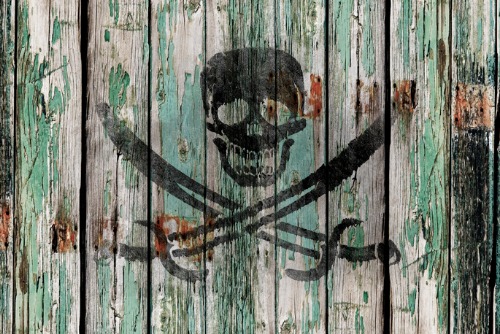

When most people hear the word piracy in 2019, one of two things probably comes to mind: online piracy, which entertainment companies are struggling to combat, or the pirates of yore, peg legged and eye-patched.
The reality is that marine piracy is very real in 2019, but not many people are aware of its extent. While films like Pirates of the Caribbean may portray pirates as lovable villains, searching for cursed gold and having adventures on the high seas, what happens now is far grimmer.
Pirates operating in parts of the world like off the coast of West Africa, South East Asia and in the Gulf of Aiden are not like Captain Jack Sparrow - and the people aboard ships that are boarded and taken hostage will attest to that.
The numbers of piracy incidents, while not as large as those during the Gulf of Aiden crisis in 2010-2012, has gone up again recently - which is why insurance can play such a large role for shipping companies when it comes to their business.
Mike Salthouse, deputy global director of claims for North P&I, says that the state of piracy in the world does trouble him, especially the fact that the public is unaware of it.
“The problem that really outrages me as someone who works in shipping is that it only comes to public attention when an American gets kidnapped or a Brit,” he said. “We, that’s you and I as consumers, treat seafarers with absolute contempt.
“We don’t mind the fact that at that particular time there are 800 or so seafarers being held hostage in absolutely appalling circumstances by Somali pirates so that we get our flash television or our clothes from Indonesia or whatever it happens to be.
“But an American gets kidnapped and the US Navy swings into action and we make a film out of it. It’s immoral really.”
It’s a tragic reality, but it’s true. Kidnappings and hostage situations are commonplace, but the Western world often doesn’t see the images on the news or hear the statistics.
For example, in 2018 there were approximately 201 reported piracy incidents, with issues growing near Nigeria, Ghana and Venezuela.
“Those are reported attacks, they don’t take account of the fact that for shipping, unfortunately, I wouldn’t say it’s common but it is just a known hazard in certain places,” Salthouse explained.
“If you’re laying an anchor off Lagos then the chances of being attacked by people with guns on boats is quite high, and you may have armed protection, or the Nigerian Navy may be present to a greater or lesser extent.
“It’s just an expected problem of trading in these particular areas. As to how much is reported, best estimates are probably double.”
The UK Hydrographic Office (UKHO) estimates that US$7 billion-$12 billion is lost annually due to piracy, so the incentive for shipping companies to insure their vessels is a no brainer. In fact the UKHO recently announced a partnership with the Seychelles government to carry out activities in the area to tackle piracy.
“As an island state that is hugely reliant on a buoyant tourism industry, the threat of piracy and illegal and unregulated fishing in the Indian Ocean is of huge concern to the Seychelles and its neighbours,” Paul Merchant, UKHO capability development manager said.
“From a UK perspective, we also have a huge amount of trade that passes through these waters.”
While there are multiple types of insurance that shipping companies need, North P&I deals exclusively with third party liability.
“We’re looking really at the liabilities the owners owe to third parties and there is an impact of piracy upon us, but it’s rather indirect,” Salthouse explained. “So you’re looking at a pirate attack and two men are killed or injured, and we’re covering the death benefits.”
The company is mostly concerned with looking after the people who have been kidnapped, or, in the worst-case scenario, their families if they are killed. There are certain circumstances where they would pay a ransom for a client.
“There are certain circumstances where we would contribute to ransom but we wouldn’t do that directly - we would do that because there was some fault on the part of the owner,” Salthouse said.
“Obviously as a matter of law we would be arguing that some scallywag with an eyepatch and a parrot chose to attack our ship, that’s not the owner’s fault. So why should they be obliged to contribute to the ransom.”
Salthouse says that many ship owners are a lot more aware now about their options, but many still need to be presented with them.
“Ship owners are much better educated about the measures they need to take to protect their vessels,” he explains. “General average expenditure, which is the ransom, if the cargo underwriters refuse to pay then the ship owner may be able to recover that expenditure from us, but only when there’s fault on the part of the ship owner.
“And it’s difficult to hold a ship owner at fault when he’s been attacked by a pirate. Ship owners are quite coy about buying this insurance, because it may well prejudice the terms of the cover if they were to say they had it.”
Overall, it’s a complex area of insurance, but one that has a human cost, and those involved are passionate about. That’s what the experts don’t want you to forget.
